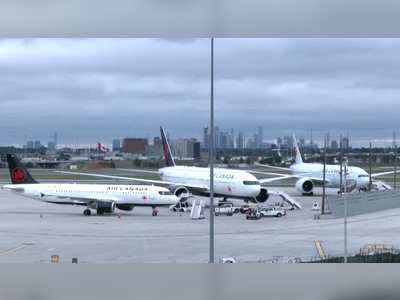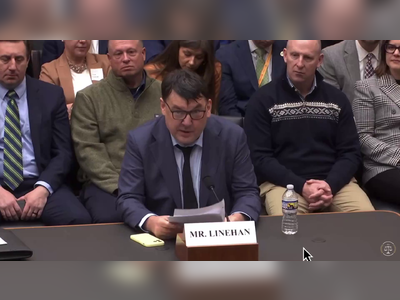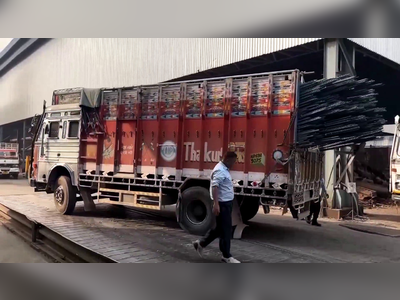Costa Rica's Tourism Faces Turbulence Amid Airport Staffing Crisis
Liberia International Airport's dysfunction threatens economic pillars as labor disputes highlight systemic issues.
The picturesque landscapes of Costa Rica's Guanacaste region, attracting travelers to its sun-dappled shores and lush interiors, face a turbulent future.
The disruption at Liberia International Airport, a crucial node for the region's bustling tourism industry, has thrown a spotlight onto the staffing crisis that threatens to unravel decades of painstaking development and prosperity.
The timing of this crisis could not be more unfortunate.
The high season, a lifeline for countless families who rely on the tourism economy, is overshadowed by operational disruptions at the airport.
Flight delays have spiraled into a domino effect, threatening the income flow for local enterprises in places like Tamarindo and Papagayo, who risk losing up to 60% of their annual revenue just as they were beginning to recover from the pandemic's impact.
The situation has sparked concerns from figures like José Álvaro Jenkins of UCCAEP, who warns that the airport's failures could drive tourists to rival destinations, tarnishing the region's hard-won reputation.
Yet, rather than a standalone incident, this crisis reflects broader systemic challenges within Costa Rica's aviation sector.
The ongoing labor unrest among air traffic controllers, calling for improved working conditions, underscores an industry-wide plea for reform.
Director of Civil Aviation, Marcos Castillo, has mentioned temporary band-aids such as overtime and reassignment of personnel, but these measures merely postpone the inevitable.
Looming burnout not only threatens service quality but poses serious safety risks.
Against the backdrop of these immediate issues lies a potentially transformative opportunity for the Costa Rican government.
If approached deftly, this crisis could serve as a catalyst for comprehensive reform in labor relations within aviation—a template potentially influential for the entire region.
Yet, the stakes are exceedingly high.
The potential economic fallout for the region is daunting, and as María Rodríguez, a local tour operator, shares, businesses are just emerging from pandemic-related setbacks, amplifying the impact of current disruptions.
This juncture demands an honest evaluation of priorities, juxtaposing economic interests with the urgent calls for equitable labor rights.
Perhaps, quoting José Martí, 'Liberty is the right of every man to be honest.' This calls for an honest dialogue about envisioning a future where sustainability in tourism goes hand in hand with fair workforce practices.
As Costa Rica navigates this critical moment, it stands at the brink of reshaping its tourism landscape and setting a powerful precedent for balancing economic survival with social justice.
For stakeholders and observers alike, the unfolding scenario is a sobering reminder of the interconnected challenges—and opportunities—that define our ever-globalizing world.
The disruption at Liberia International Airport, a crucial node for the region's bustling tourism industry, has thrown a spotlight onto the staffing crisis that threatens to unravel decades of painstaking development and prosperity.
The timing of this crisis could not be more unfortunate.
The high season, a lifeline for countless families who rely on the tourism economy, is overshadowed by operational disruptions at the airport.
Flight delays have spiraled into a domino effect, threatening the income flow for local enterprises in places like Tamarindo and Papagayo, who risk losing up to 60% of their annual revenue just as they were beginning to recover from the pandemic's impact.
The situation has sparked concerns from figures like José Álvaro Jenkins of UCCAEP, who warns that the airport's failures could drive tourists to rival destinations, tarnishing the region's hard-won reputation.
Yet, rather than a standalone incident, this crisis reflects broader systemic challenges within Costa Rica's aviation sector.
The ongoing labor unrest among air traffic controllers, calling for improved working conditions, underscores an industry-wide plea for reform.
Director of Civil Aviation, Marcos Castillo, has mentioned temporary band-aids such as overtime and reassignment of personnel, but these measures merely postpone the inevitable.
Looming burnout not only threatens service quality but poses serious safety risks.
Against the backdrop of these immediate issues lies a potentially transformative opportunity for the Costa Rican government.
If approached deftly, this crisis could serve as a catalyst for comprehensive reform in labor relations within aviation—a template potentially influential for the entire region.
Yet, the stakes are exceedingly high.
The potential economic fallout for the region is daunting, and as María Rodríguez, a local tour operator, shares, businesses are just emerging from pandemic-related setbacks, amplifying the impact of current disruptions.
This juncture demands an honest evaluation of priorities, juxtaposing economic interests with the urgent calls for equitable labor rights.
Perhaps, quoting José Martí, 'Liberty is the right of every man to be honest.' This calls for an honest dialogue about envisioning a future where sustainability in tourism goes hand in hand with fair workforce practices.
As Costa Rica navigates this critical moment, it stands at the brink of reshaping its tourism landscape and setting a powerful precedent for balancing economic survival with social justice.
For stakeholders and observers alike, the unfolding scenario is a sobering reminder of the interconnected challenges—and opportunities—that define our ever-globalizing world.











